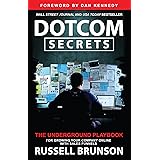As a business owner, understanding and effectively managing your marketing budget is crucial to ensuring the growth and sustainability of your enterprise. For businesses generating around $250,000 annually, finding the right balance between spending enough to achieve visibility and not overextending financially is key. This blog post will guide you through the essentials of determining an average marketing budget and explore some basic marketing options to consider.
Determining Your Marketing Budget
A commonly recommended guideline for small businesses is to allocate 7-8% of their gross revenue to marketing. For a business generating $250,000 annually, this translates to a marketing budget of $17,500 to $20,000 per year. This percentage can vary depending on your industry, market conditions, and business goals. Here’s a breakdown of how you might allocate these funds:
1. Digital Marketing (40-50%):
In today’s digital age, a significant portion of your marketing budget should go towards online efforts. This includes:
- Website Development and Maintenance: A professional, user-friendly website is a must.
- Search Engine Optimization (SEO): Ensuring your website ranks well on search engines.
- Pay-Per-Click (PPC) Advertising: Google Ads and social media ads.
- Content Marketing: Blogs, videos, and infographics that engage and educate your audience.
- Social Media Marketing: Paid promotions and organic posts on platforms like Facebook, Instagram, and LinkedIn.
2. Traditional Marketing (20-30%):
While digital marketing is essential, traditional marketing methods still hold value.
- Print Advertising: Flyers, brochures, and local magazine ads.
- Direct Mail Campaigns: Personalized mailers to target specific demographics.
- Networking and Events: Sponsorships, trade shows, and local events.
3. Branding (10-20%):
Establishing and maintaining a strong brand identity is crucial.
- Logo Design and Brand Collateral: Professional design services for logos, business cards, and letterheads.
- Rebranding: Updating your brand to keep it fresh and relevant.
- Merchandise: Branded items like t-shirts, mugs, and pens.
4. Market Research (5-10%):
Understanding your target audience and market trends can help you make informed decisions.
- Surveys and Focus Groups: Gather feedback from your current and potential customers.
- Data Analytics Tools: Invest in tools that provide insights into customer behavior and preferences.
Basic Marketing Options for Small Businesses
Once you have a budget in mind, it’s time to explore various marketing options to maximize your investment:
- Content Marketing: Creating valuable, relevant content to attract and engage your target audience. This includes blog posts, videos, infographics, and eBooks. Content marketing helps build authority and trust in your industry.
- Social Media Marketing: Utilize platforms like Facebook, Instagram, LinkedIn, and Twitter to connect with your audience, share content, and run targeted ads. Social media marketing is cost-effective and can yield high engagement rates.
- Email Marketing: Build and maintain an email list to send newsletters, promotional offers, and updates. Email marketing is a direct way to reach your audience and nurture leads.
- SEO and PPC Advertising: Invest in SEO to improve your website’s organic search rankings. Complement this with PPC advertising to drive immediate traffic and conversions. Google Ads and social media ads can be tailored to fit any budget.
- Networking and Local Events: Participate in local business events, trade shows, and networking groups. Building relationships within your community can lead to valuable partnerships and new customers.
- Referral Programs: Encourage your existing customers to refer new clients by offering incentives such as discounts or freebies. Word-of-mouth referrals are highly trusted and can significantly boost your business.
So, what have we covered…
Determining the right marketing budget for your small business is a strategic decision that requires careful consideration of your business goals, industry standards, and target audience. By allocating your funds wisely and exploring various marketing options, you can effectively promote your brand, attract new customers, and drive growth. Remember, the key to successful marketing is not just about spending money, but about investing it in the right strategies that align with your business objectives.
For more personalized advice on developing your marketing strategy, feel free to reach out. I’m here to help you navigate the ever-changing landscape of marketing and branding to ensure your business thrives.












